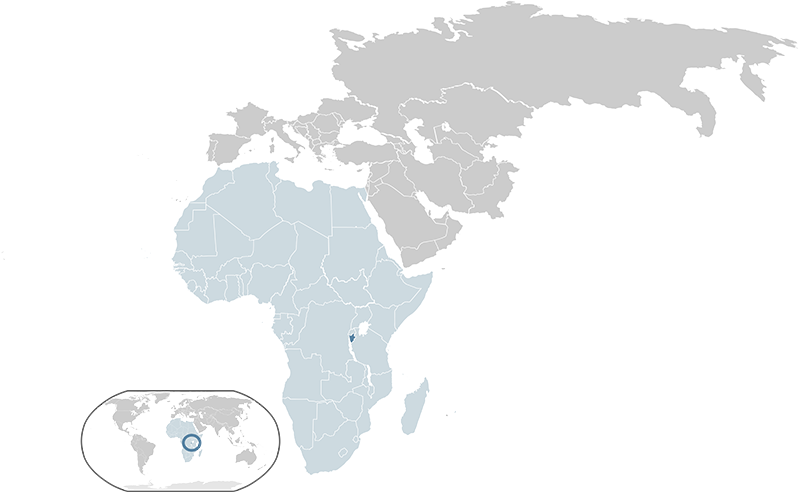
- Population:
- 14,048,000
- Religion:
- Christianity
Burundi’s history is shaped by its indigenous Hutu, Tutsi, and Twa peoples. It was part of the Kingdom of Burundi before becoming a German and later Belgian colony. It gained independence in 1962, but tensions between Hutu and Tutsi groups led to civil wars and ethnic violence, culminating in a brutal conflict in the 1990s. Since the early 2000s, Burundi has been rebuilding politically and economically, though challenges like poverty and political tensions persist.
Burundi, officially the Republic of Burundi, is a landlocked country in East Africa, bordered by Rwanda to the north, Tanzania to the east and southeast, and the Democratic Republic of the Congo to the west. It has a southwestern border along Lake Tanganyika. Covering an area of 27,834 square kilometers, Burundi has a population of approximately 14.1 million people as of 2024. The capital is Gitega, while the largest city and main port is Bujumbura. The official languages are Kirundi, French, English, and Swahili. Burundi operates as a unitary dominant-party presidential republic under an authoritarian dictatorship. The economy is predominantly agricultural, with coffee and tea being the main exports. The country faces challenges such as political instability, poverty, and limited infrastructure but is a member of international organizations like the United Nations and the African Union.






